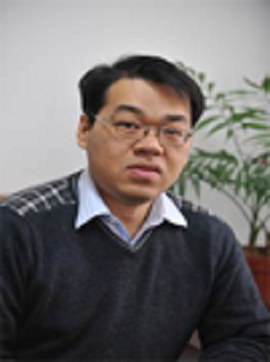RESEARCH AND TEACHING INTERESTS
Integrated Energy System and Energy efficiency design, Green Building Technology and Evaluation System, Regional Climate and Heat Island Simulation, Urbanism and Energy Efficiency
EDUCATION
Bachelor of Science, School of Architecture, Tsinghua University, 1999
Doctor of Philosophy in Heating, Ventilating and Air Conditioning Engineering, School of Architecture, Tsinghua University, 2004
PROFESSIONAL EXPERIENCE
School of Architecture, Tsinghua University, Beijing, China
Professor and Asst. Dean (12/2012-now), School of Architecture, Tsinghua University
Associate Professor (12/2007-now), Dean Asst. for Research, Institute of Building Technology Research, Dept. of Building Science, School of Architecture, Tsinghua University
Assistant Professor (05/2006-11/2007), Institute of Building Technology Research, Dept. of Building Science, School of Architecture, Tsinghua University
Postdoctoral fellow (06/2004-04/2006) Institute of Building Technology Research, Dept. of Building Science, School of Architecture, Tsinghua University
Research Fellow, POLITECNIC DI MILANO, Italy, (02/2003-08/2003)
RESEARCH PROJECTS
1.“Embodied Energy in Chinese Buildings: Developing an Approach to Assess the Life Cycle Impact of Building Construction, Operations and Decommissioning” (2009-2010), Deputy Coordinator, Supported by Energy Foundation
2.“Analysis for the Investigated Energy Consumption Data of Large-Scale Public and Governmental Buildings” (2009-2010), Deputy Coordinator, Supported by Energy Foundation
3.“Quantitative Research for the Landscape structure and Space Arrangement for the Outdoor Thermal Environment” (2009-2011), NSFC Project, Chief Coordinator
4.“Research for Evaluation Standards and Guideline for Green Campus after Earthquake” (2008-2009), Deputy Coordinator, Supported by Energy Foundation
5.“Analysis for the Investigated Energy Consumption Data of Large-Scale Public and Governmental Buildings” (2009-2010), Deputy Coordinator, Supported by Energy Foundation
6.“Urban development and Energy Efficient Policy”(2008-2009), Deputy coordinator, Supported by CCICED(China Council for International Cooperation on Environment and Development)
7.“Development Strategy for Green Buildings in China”(2007-2008), Deputy Coordinator, Supported by Energy Foundation
8. Key project of State 11th-five year (2006-2010) plan: Design method and simulation software development for building energy efficient design, Key Researcher
9. Key project of State 11th-five year (2006-2010): Research for Heat island control and landscape technology, Sub-Coordinator
10. Key research Project supported by Beijing Government: “Envelope energy saving technology for large-scale building” (2006-2008), Sub-Coordinator
11. State 10th-five Key project (2004-2006): Key technologies for green building, Key Researcher
12. Beijing Key research Project: Low Energy Demo building and evaluation system for new built building (2003.10-2005.3), Key Researcher
13. European Committee Project: Asia-Pro-ECO (2003.10-2006.5), Key Researcher
COURSES TAUGHT
Undergraduate
Built Environment: 32 hours
Eco Design Studio: 96 hours
Building Details: 8 Weeks
Graduate
Simulation for Built Environment and Energy Efficient Design, 32 hours for graduate students
Building Physics: 48 hours
International Green Architectural Course (for International Graduate Student)
HONORS AND AWARDS
1. Excellent Young Scientists Fund supported by NSFC( National Science Fund Committee), 2012 (First and the only supporter in Architecture Discipline at national arrange)
2. 1st Award of Excellent HVAC Design (China Architecture Association) (Ranked 2, 2012)
3 National Green Building Originality Innovation 1st Award (Ministry of Construction) (2011,2007,2013)
4. Key Qualified Personnel Supported Plan of Tsinghua University (2006)
5. Excellent Post-doctor of Tsinghua University (2005)
6. Beijing Science and Technology 1st Award (ranked 5, 2005)
7. Excellent Architectural Design 1st Award of Ministry of Education (ranked 7, 2005)
8. Excellent Design Award of 1st China Green Housing Design Competition (2002)
9. As advisor, Student Competition:
10. 2007 Taida Solar Architecture Design Competition, 1st Award (1) and 3rd Award (1)
11. 2007 Green Architectural Design Competition (China Merchant Property Development), 1st Award (1) & 3d Award (4)
12. 2008 International VELUX Award (2nd Award)
PROFESSIONAL AFFILIATIONS AND ACTIVITIES
1. Vice Chairman of Green Building labeling Committee, Ministry of Housing and Urban &Rural Construction, 2008.11-
2. Vice Secretarial of Beijing Green Building Council
3. Vice Secretarial of Beijing Sustainable Council
4. Green building Consultant for Shenzhen Building Energy Research Centre (2006.4-2008.4)
5. Expert for State Environment Protection Agency Evaluation Centre
6. Expert for Beijing Environmental Protection and Energy saving Centre
7. Moreover, Dr. Lin is the invited reviewer of several international Journals including Environment & Building, Building and Energies, Asia Journal of Architecture and Building Engineering, Journal of Wind Engineering & Industrial Aerodynamics and Building Simulation. And Dr. Lin is the Organization Committee of EERB2009 and the Session Chairman of several International conferences
PUBILICATIONS
Journal papers
1. Borong Lin, Xiaofeng Li, Yingxin Zhu, Youguo Qin Numerical simulation studies of the different vegetation patterns’ effect on outdoor pedestrian thermal comfort, Journal of Wind Engineering and Industrial Aerodynamics, 2008 (SCI 0167-6105)
2. LijingGu, Borong Lin, DaojinGu, Yingxin Zhu, An endpoint damage oriented model for life cycle environmental impact assessment of buildings in China, Chinese Science Bulletin, 53 (23),2008-12: 3762-3769 (SCI 377NJ)
3. LijingGu, Borong Lin, Yingxin Zhu, DaojinGu, Mingxing Huang, JiaziGai, Integrated assessment method for building life cycle environmental and economic performance, Building Simulation,2008, 1:169-177
4. Chunhai Xia, Yingxin Zhu, Borong Lin, Building simulation as assistance in the conceptual design, Building Simulation,2008, 1:46-52
5. Xia Chunhai, Zhu Yingxin, Borong Lin. Renewable energy utilization evaluation method in green buildings. Renewable Energy, 2008, 33(5):883-886. (SCI 9768396)
6. Borong Lin, Gang Tan, Peng Wang, et al. Study on the Thermal Performance of the Chinese Traditional Vernacular Dwellings at Wannan Area in Summer: Field Measurements and Data Analysis. Energy and Buildings. 36(1): 73-78, January, 2004 (SCI 0378-7788, EI 03467726332)
7. Yingxin ZHU, Borong LIN. Sustainable Housing and Urban Construction in China. Energy and Buildings, v 36, n 12, December, 2004, p 1287-1297(SCI867TY,EI 04438415276)
8. X.H. LIU, K.C. GENG, B.R. LIN, Y. JIANG. Combined Cogeneration and Liquid Desiccant System Applied in a Demonstration Building. ENERGY AND BUILDINGS 36 (9): 945-953 SEP 2004(SCI 847IG, EI 8224379)
9. Li L, Li XF, Lin BR, Zhu YX. Improved k-epsilon two-equation turbulence model for canopy flow. ATMOSPHERIC ENVIRONMENT 40 (4): 762-770 FEB 2006 (SCI018KY)
10. Liu, Xiaohua; Li, Zhen; Jiang, Yi; Lin, Borong. Annual performance of liquid desiccant based independent humidity control HVAC system. Applied Thermal Engineering, Vol: 26, Issue: 11-12, August, 2006. pp. 1198-1207 (SCI 00376-5)
11. BR Lin, ZQ Zhang, XF Li, YX Zhu, Numerical simulation study on the effects of fountain on around thermal environment, Proceedings: Building Simulation 2007, September 3-6, 2007, pp23-30
12. BR Lin, XF Li, YX Zhu, A new simulation system for radiation calculation when opaque and half transparent objects exist together, Proceedings: Building Simulation 2007, September 3-6, 2007, pp1097-1102
13. GuLijing, GU Daojing, Lin Borong, Zhu Yingxin. Study on the effect of different envelopes on life cycle environmental load of residential buildings, Journal of Harbin Institute of Technology. 2007, 14(sup.): pp431-434(EI)
14. BR LIN, YX ZHU, YG Qin and Y Jiang, Research and application of GOBAS for sustainable buildings in China, Proceedings of 1st AIK Sustainable Building Workshop, Seoul, Korea, 2006, Mar. 2
Books
1. Building Energy Consumption White book, China Architecture and Building Press, 2007.3
2. Energy Efficiency in Residential Buildings”, China Architecture and Building Press, 2005.12
3. Implementation Manual for Green Olympic Buildings of 2008, Beijing”, China Architecture and Building Press, 2004.3
4. Assessment System for Green Olympic Buildings of 2008, Beijing”, China Architecture and Building Press, 2003.9
5. China Eco-housing Rating Handbook”, 2002.10
6. China Eco-housing Rating Handbook”(2nd version), 2003.10
7. Technical guidance for Green Building evaluation standard, Ministry of Construction, 2007.4-2007.8
8. Evaluation Standard for Green Building, Ministry of Construction, 2005.8-2006.1
9. Evaluation Standards for Green Buildings in Beijing, Construction Committee of Beijing, 2004.7-2005.3
10. Eco-housing technical certification standards, SEPA (State Environmental Protection Agency)





